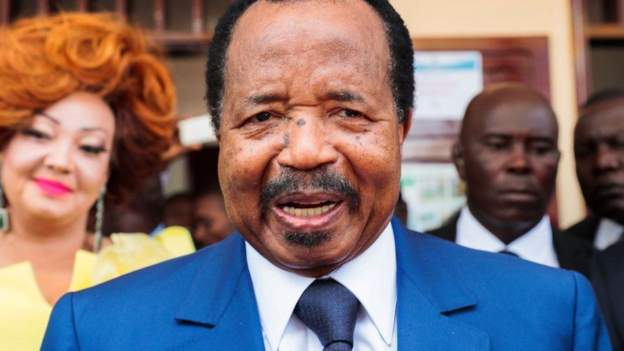

The Cameroonian presidency has debunked reports alleging that Paul Biya, the nation’s 91-year-old leader, is dead.
Biya’s health has been the subject of widespread speculation for nearly a month.
The Cameroonian president successively cancelled appearances at the United Nations General Assembly (UNGA), the International Organisation of La Francophonie (OIF) summit, and the Sustainable Development Forum in Hamburg, Germany.
The rumours reached a crescendo on Tuesday when ABS Africa TV announced the president’s death.
Biya has not been seen in public since leaving Beijing on September 8, after attending the Forum on China-Africa Co-operation (FOCAC).
He had been expected to return to Cameroon in mid-September after his stay in China.
Preparations for his arrival had been put in place but were later lifted when the president’s medical team advised him to remain in Switzerland.
Biya has regularly undergone medical care and extended periods of rest in Switzerland.
According to the Cameroon Intelligence Report, an online platform, the president has been battling heart problems and memory failure for many years.
The report added that Biya’s health was worsened by prostate cancer, which spread to other vital organs, eventually claiming his life over the weekend at a hospital in an uncertain location of Paris or Geneva.
However, Samuel Ayolo, the director of the presidency’s civil cabinet, issued a statement debunking Biya’s rumoured death.
“For some time now, some malicious people through social networks have tried to make people believe that the President of the Republic is seriously ill, or even passed away,” Ayolo said.
“The Civil Cabinet of the Presidency of the Republic wishes to reassure all our compatriots as well as the international community about the excellent state of health of the Head of State who works and goes about his business in Geneva from where he has never left since his arrival from Beijing.
“The Civil Cabinet of the Presidency of the Republic strongly condemns behaviors that abuse freedom of expression to try to disturb national and international opinion.”



